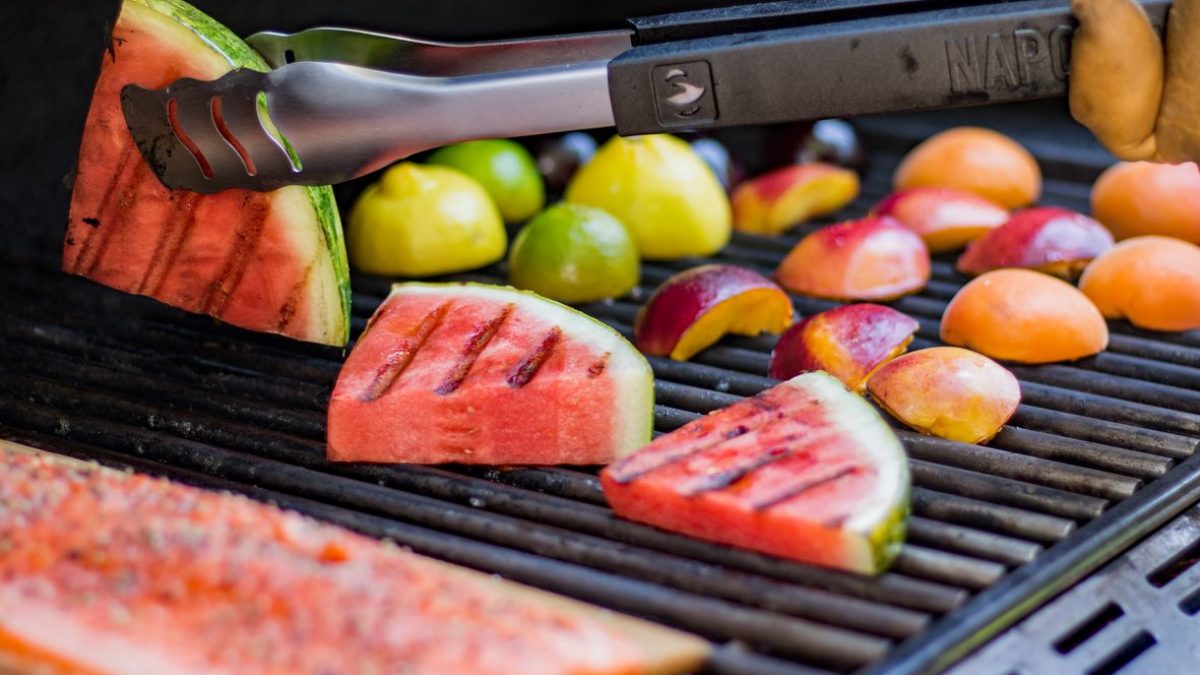
Grilling fruit is an idea that has sparked curiosity for some time now. But while large, hearty fruits like pineapples and peaches take well to the grill, small pieces of fruit, unfortunately, do not. For all the good intentions of trying to add a smoky flavor to your favorite fruits, the reality is that grilling small fruits is a gamble that often doesn’t pay off.
The Grill’s Heat: Too Much for Small Fruit
Grills are designed to produce intense heat, making them perfect for cooking larger cuts of meat or thick slices of vegetables. However, when it comes to small pieces of fruit, this heat can be a bit too much to handle. Fruits like berries, grapes, or even small chunks of apple or pear don’t stand a chance against high temperatures. The direct heat can cause them to burn quickly, and not in a good way—think blackened edges and an unpleasantly charred flavor.
Small fruits just can’t hold up to such intense heat without losing their integrity. Rather than achieving a delicious smoky flavor, you end up with mushy, caramelized bits of fruit that fall through the grill grates. The result? A messy, sad, fruit-on-the-grill disaster. So, before you toss that skewer of berries on the grill, take a moment to consider how much heat those little fruits are really getting—and whether they can handle it.
The Moisture Problem
One of the main reasons why small fruits suffer on the grill is the high moisture content they carry. Most small fruits, like strawberries or cherries, have a lot of water inside them, which makes them great for refreshing snacks but not for grilling. When exposed to high heat, that moisture tries to escape, causing the fruit to break down or become overly soggy. Instead of a well-textured grilled fruit bite, you're left with a watery mess that loses its shape and is difficult to eat.

The moisture released from small fruits can also cause flare-ups on the grill, creating an unpredictable cooking environment. This might sound like a grilling catastrophe waiting to happen, and in many cases, it is. The result is a lackluster fruit that no longer resembles its fresh, vibrant self, but rather something that’s been reduced to mushy, smoky remnants.
Grilling Small Fruit Equals Lost Flavor
Grilling large pieces of fruit, such as pineapple rings or thick peach slices, offers a wonderful contrast between charred, smoky exterior and juicy, sweet interior. However, with small fruits, that balance is nearly impossible to achieve. They cook too quickly, with no time to develop that nuanced charred flavor that makes grilled fruit so special.
When you grill small fruit, you risk stripping it of its natural flavors. The intense heat can burn off the sweet, delicate notes of the fruit, leaving behind only bitterness and a dull taste. This means you lose the best part of grilling fruit—the added depth of flavor that comes from caramelization. Without that, you're essentially left with a fruit that’s both overcooked and underwhelming.
Uneven Cooking
Another problem with grilling small pieces of fruit is the challenge of achieving even cooking. Unlike larger fruits, which can be turned and monitored on the grill, small pieces often end up cooked unevenly. The exterior may be burnt, while the inside remains raw, or vice versa. Since they’re so small, it’s hard to regulate the cooking process, especially if you’re trying to grill multiple pieces at once.
That means instead of a perfectly grilled fruit with the right balance of caramelization and tenderness, you get inconsistently cooked fruit that doesn’t have the satisfying texture or flavor you’re after. Small fruits simply don’t have the surface area needed to cook evenly and create that perfect grilled finish.

Grilled Fruit and the Mess Factor
Here’s where small fruits really get the short end of the stick. They have a tendency to fall through the grates of the grill, and no one wants to spend the next 20 minutes fishing burnt berries out of the charcoal. Even if you put them in a grill basket or skewer them, they can still end up slipping through or sticking to the grill, causing a mess that’s hard to clean up.
Moreover, grilling small fruit can lead to a sticky, sugary mess, especially when those fruits are coated in a sweet marinade or glaze. You might find that the grill grates end up being more caramelized than your fruit, and you’ll be left with the headache of scraping off the burnt remnants.
What’s the Best Way to Enjoy Small Fruits?
If you’re craving the smoky essence of grilled food but want to enjoy the sweetness of small fruit, don’t grill them. Instead, try roasting them in the oven, which provides a gentler heat. Roasting small fruits like cherries or figs helps them soften while retaining their natural flavor and moisture without the risk of them falling apart or becoming too charred. You can also enjoy small fruits raw, in fresh salads, or as toppings for grilled meats, where the contrast of flavors really shines without compromising their integrity.
;Resize,width=767;)
